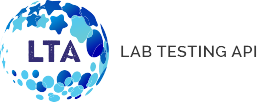
A blood test is a test in which a sample of your blood is drawn for testing in the laboratory. The specimen could be serum, plasma, or whole blood based on what type of test is recommended by your doctor. A blood test can be used to detect, screen, and monitor a variety of things, including the functioning of certain organs (i.e. heart, liver, kidneys, and thyroid), infections, diseases or medical conditions, and certain genetic disorders (a condition that occurs as a result of changes and mutation in a person’s DNA). Additionally, blood tests can also be utilized to assess an individual’s general health and evaluate the effectiveness of treatments given (1,2).
Usually, no special preparation is required for most of the blood tests. Few blood tests may require fasting for 8 to 12 hours before the blood draw. It means you don’t eat or drink anything, except for water during that time frame.
Lab Testing API offers a range of blood tests that an individual can order themselves at discounted rates, and all lab orders include a physician’s order.
When you order your blood test through Lab Testing API, you may search for the required test or you may check the lab testing categories available on our website. Each test has its specific test instructions, including fasting instructions for your convenience. It can be found under the “Testing Info” section of each test.
There are certain questions people want to ask about fasting before a blood test. This post is dedicated to answering some frequently asked questions (FAQs) related to the topic.
The author wants to put a disclaimer that the answers represent the opinions of various medical experts/ medical websites. The content is purely informational, and it should not be considered as medical advice or a doctor’s recommendation. The websites of Quest Diagnostic, Harvard Medical School, National Heart, Lung, and Blood Institute have been referenced to prepare this informational material.
Exercise positively alters your digestive system functioning and speeds up the digestive process. It in turn affects the blood test results so one should avoid it for the recommended fasting period.
If one is on regular medication, they should take it while they are fasting, unless they have been advised by their health care practitioner to do otherwise.
A blood sugar test, which measures the level of glucose (sugar) in your blood, requires fasting. In addition to that, the Lipid Panel/Lipid Profile test or a cholesterol test that helps measure the amount of cholesterol: low-density lipoprotein (LDL), or “bad” cholesterol, and high-density lipoprotein (HDL), or “good” cholesterol and certain fats (triglycerides) in the blood also requires fasting. The Basic or comprehensive metabolic panel, which is often ordered as part of a routine physical, provides information about the current status of your metabolism, the health of your kidneys and liver, the electrolytes and acid/base balance, and the level of glucose and proteins in the blood, also require fasting. In addition to that, many other tests require fasting, and you are thereby recommended to consult your doctor before the blood test.
This question is usually asked by the patients. The amount of time one should fast varies with the type of test. Generally, for most tests that require fasting, it is advised not to consume anything but water for eight hours leading up to the test. Few tests may also require 12-hour fasting. One should thus follow the special instructions given by their health care practitioner when preparing for a test.
Written by Dr. Shikha Sharma, Reviewed by Dr. Harshi Dhingra
